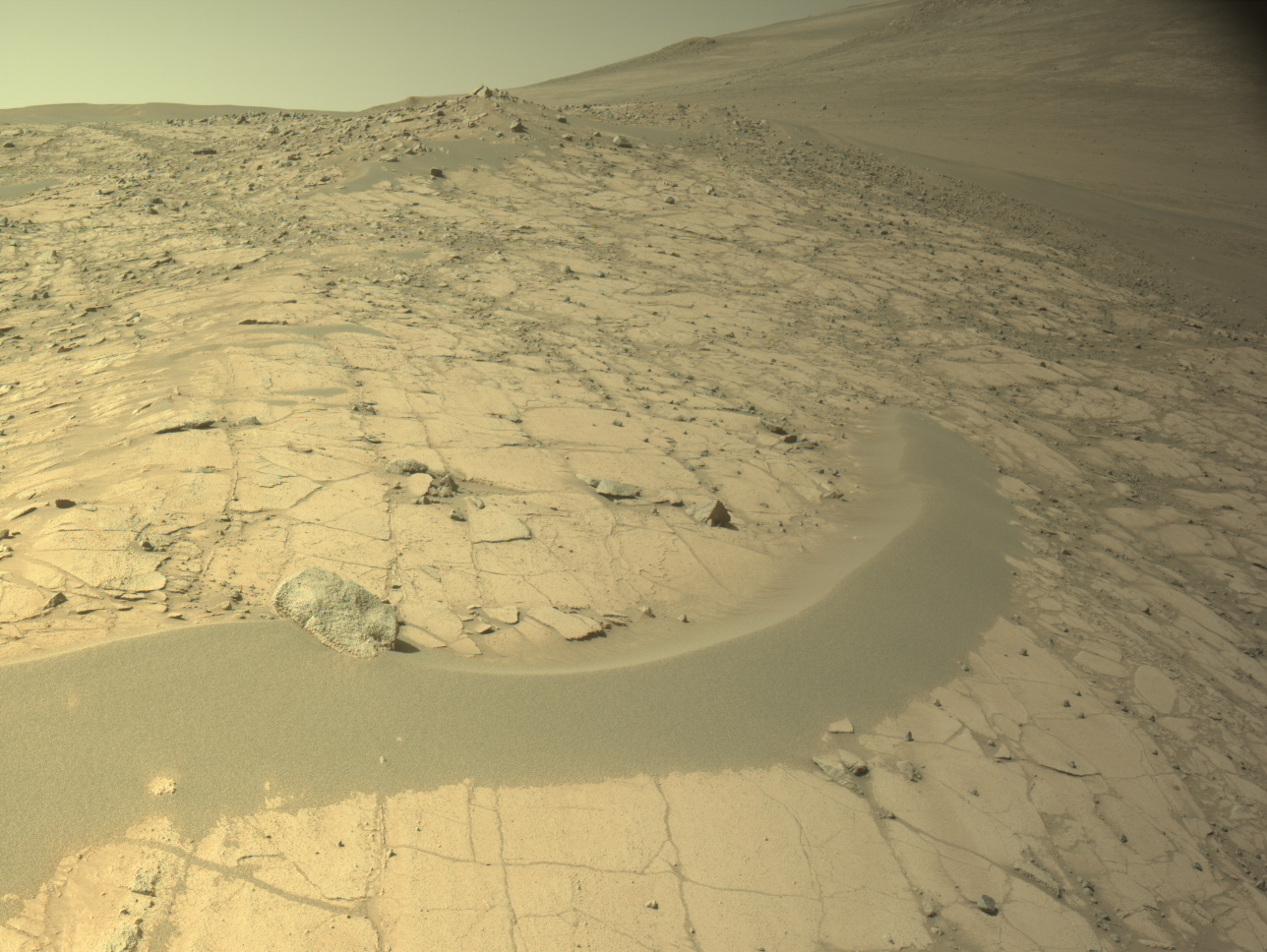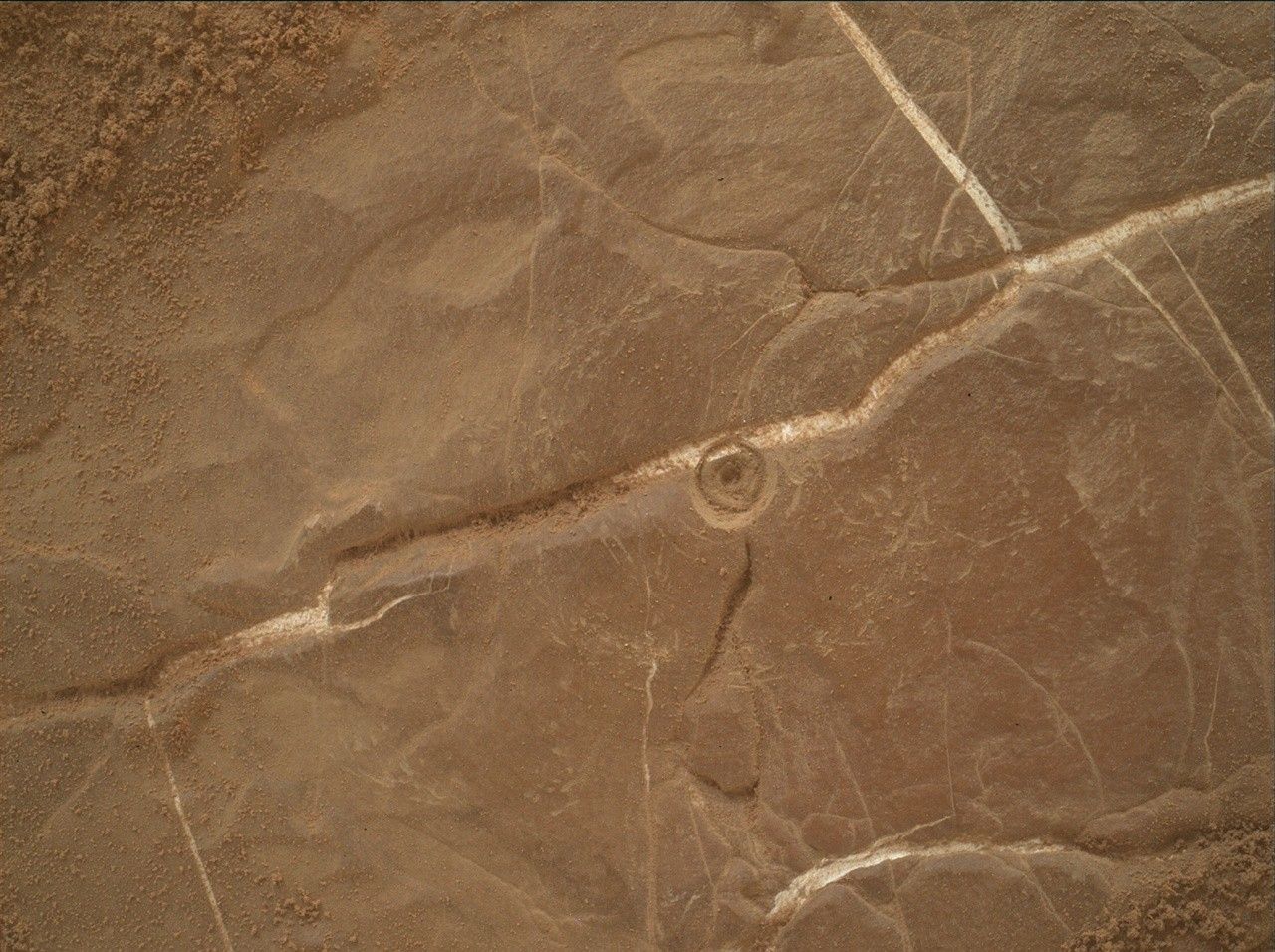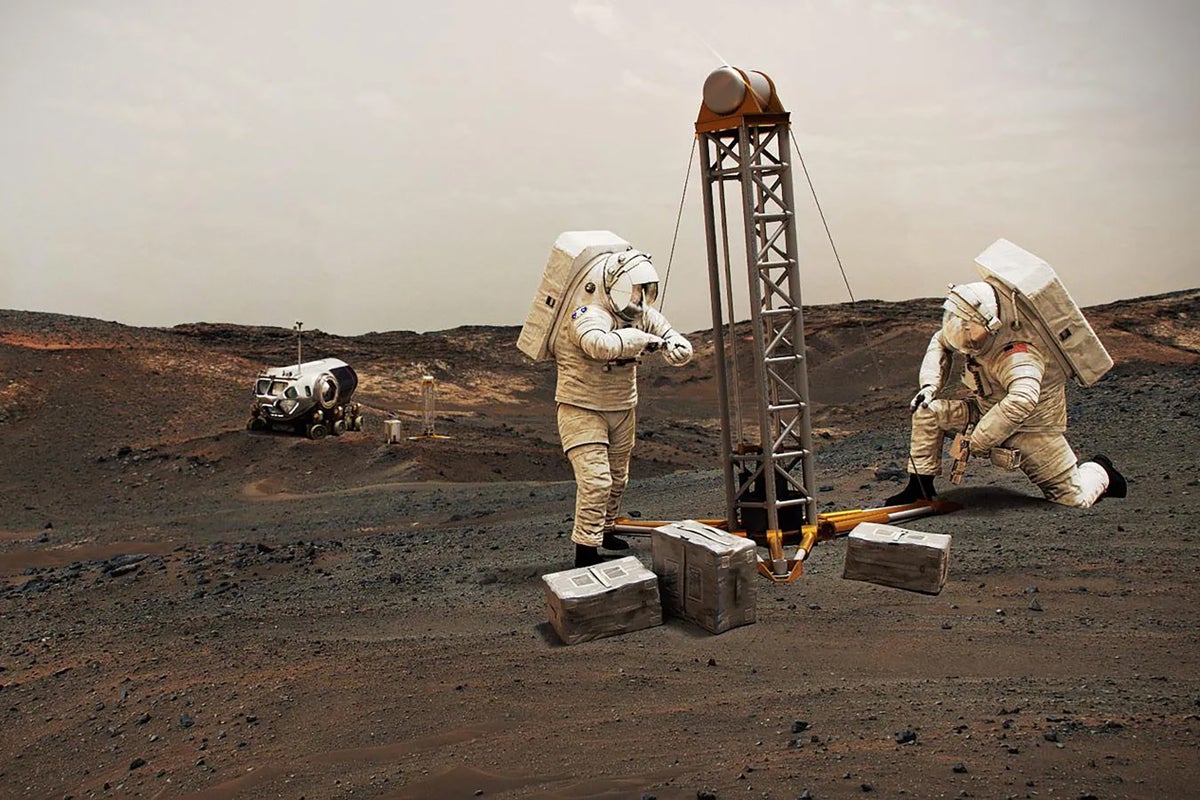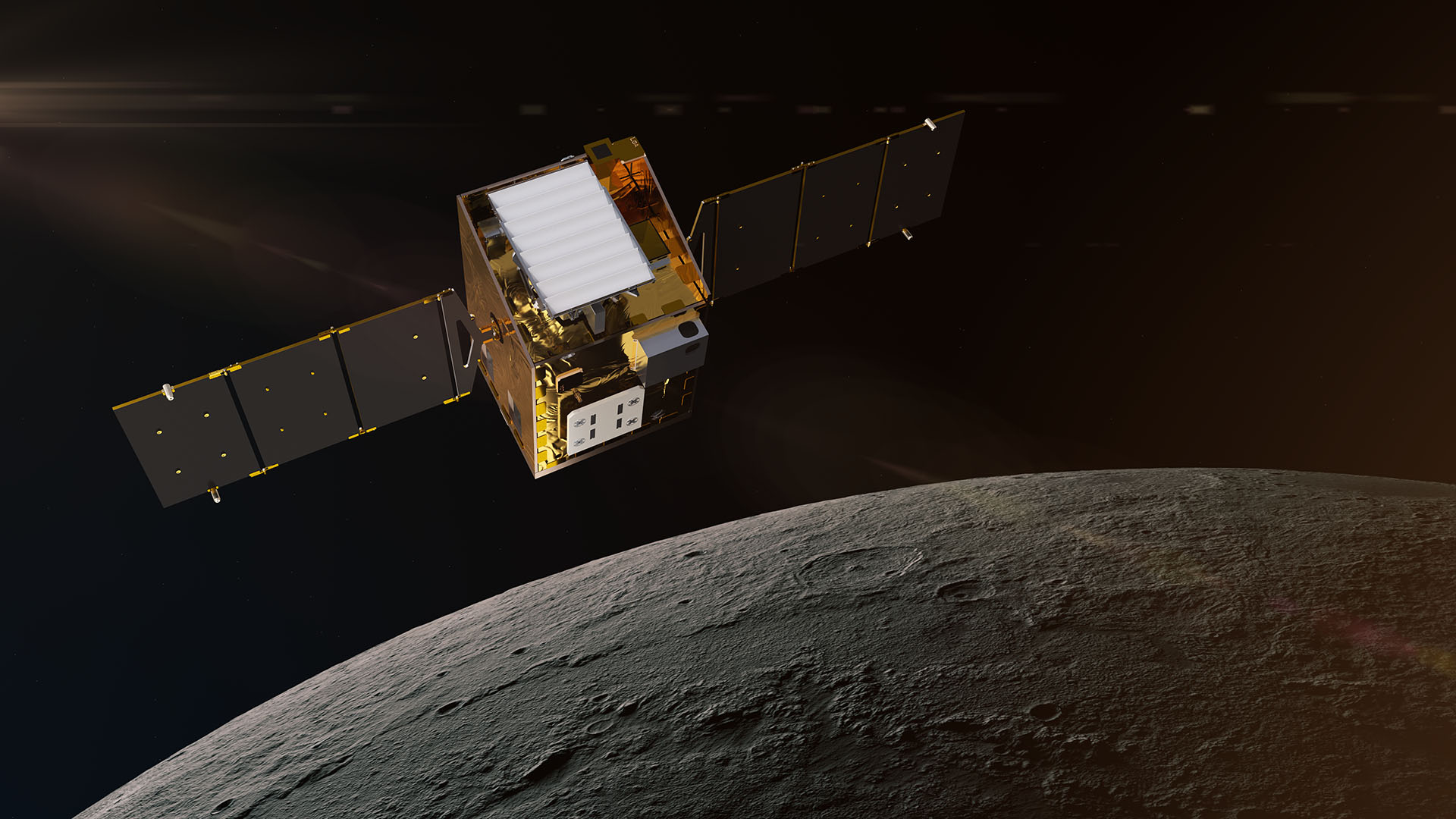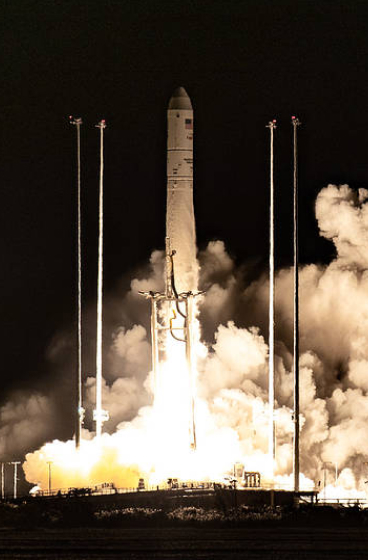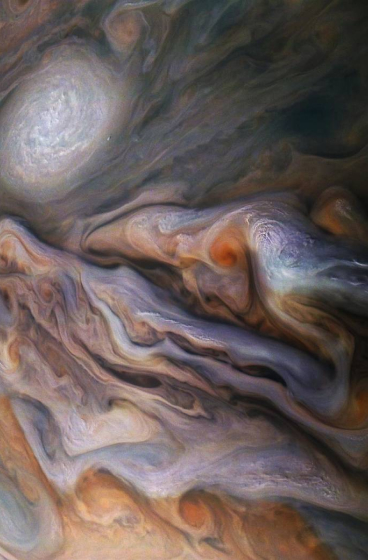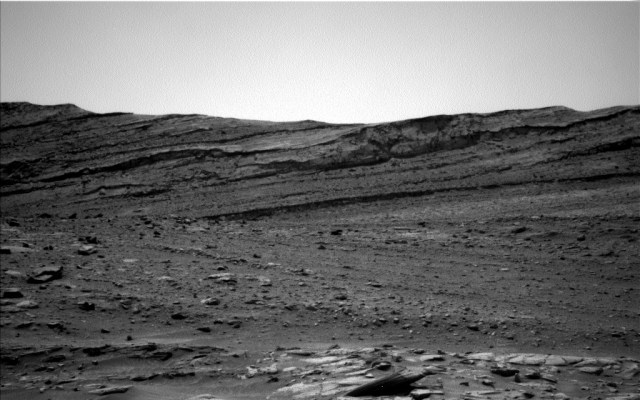How NASA’s Lunar Trailblazer Could Decipher the Moon’s Icy Secrets
There’s water on the Moon, but scientists only have a general idea of where it is and what form it is in. A trailblazing NASA mission will get some answers. When NASA’s Lunar Trailblazer begins orbiting the Moon next year, it will help resolve an enduring mystery: Where is the Moon’s water? Scientists have seen […]
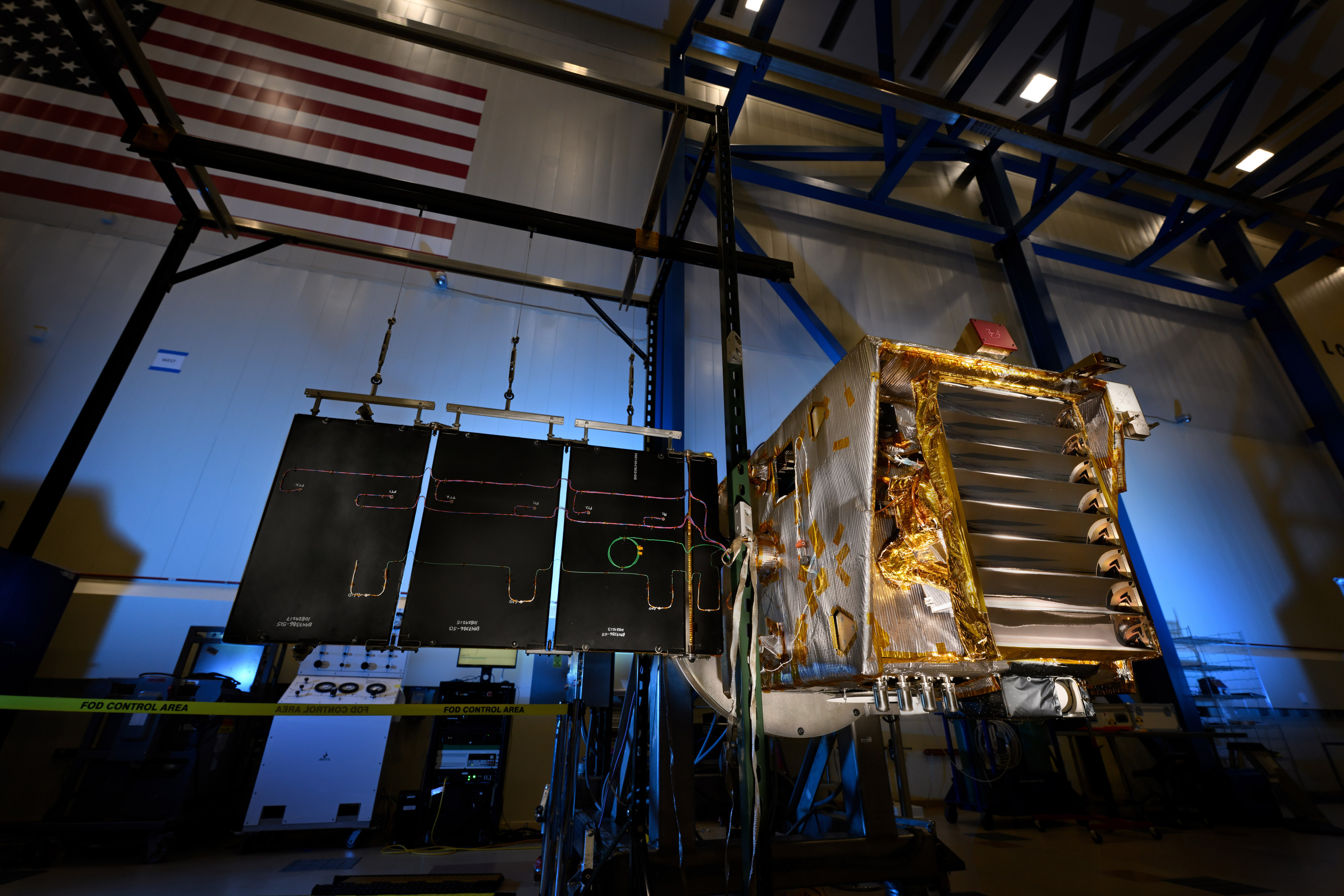
6 min read
Preparations for Next Moonwalk Simulations Underway (and Underwater)
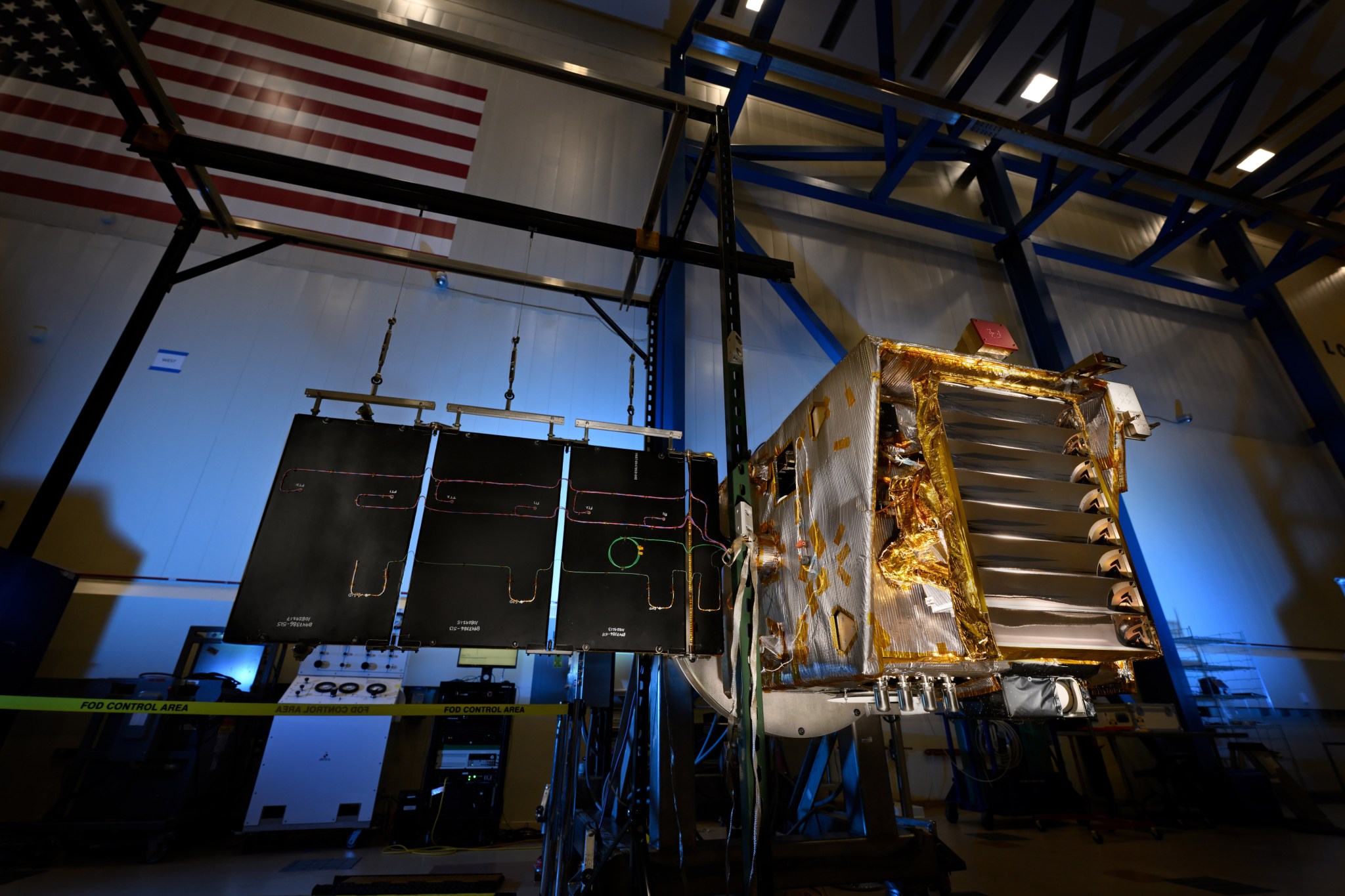
There’s water on the Moon, but scientists only have a general idea of where it is and what form it is in. A trailblazing NASA mission will get some answers.
When NASA’s Lunar Trailblazer begins orbiting the Moon next year, it will help resolve an enduring mystery: Where is the Moon’s water? Scientists have seen signs suggesting it exists even where temperatures soar on the lunar surface, and there’s good reason to believe it can be found as surface ice in permanently shadowed craters, places that have not seen direct sunlight for billions of years. But, so far, there have been few definitive answers, and a full understanding of the nature of the Moon’s water cycle remains stubbornly out of reach.
This is where Lunar Trailblazer comes in. Managed by NASA’s Jet Propulsion Laboratory and led by Caltech in Pasadena, California, the small satellite will map the Moon’s surface water in unprecedented detail to determine the water’s abundance, location, form, and how it changes over time.
“Making high-resolution measurements of the type and amount of lunar water will help us understand the lunar water cycle, and it will provide clues to other questions, like how and when did Earth get its water,” said Bethany Ehlmann, principal investigator for Lunar Trailblazer at Caltech. “But understanding the inventory of lunar water is also important if we are to establish a sustained human and robotic presence on the Moon and beyond.”
Future explorers could process lunar ice to create breathable oxygen or even fuel. And they could also conduct science. Using information from Lunar Trailblazer, future human or robotic scientific investigations could sample the ice for later study to determine where the water came from. For example, the presence of ammonia in ice samples may indicate the water came from comets; sulfur, on the other hand, could show that it was vented to the surface from the lunar interior when the Moon was young and volcanically active.
“In the future, scientists could analyze the ice in the interiors of permanently shadowed craters to learn more about the origins of water on the Moon,” said Rachel Klima, Lunar Trailblazer deputy principal investigator at the Johns Hopkins Applied Physics Laboratory in Laurel, Maryland. “Like an ice core from a glacier on Earth can reveal the ancient history of our planet’s atmospheric composition, this pristine lunar ice could provide clues as to where that water came from and how and when it got there.”
Understanding whether water molecules move freely across the surface of the Moon or are locked inside rock is also scientifically important. Water molecules could move from frosty “cold traps” to other locations throughout the lunar day. Frost heated by the Sun sublimates (turning from solid ice to a gas without going through a liquid phase), allowing the molecules to move as a gas to other cold locations, where they could form new frost as the Sun moves overhead. Knowing how water moves on the Moon could also lead to new insights into the water cycles on other airless bodies, such as asteroids
Two Instruments, One Mission
Two science instruments aboard the spacecraft will help unlock these secrets: the High-resolution Volatiles and Minerals Moon Mapper (HVM3) infrared spectrometer and the Lunar Thermal Mapper (LTM) infrared multispectral imager.
Developed by JPL, HVM3 will detect and map the spectral fingerprints, or wavelengths of reflected sunlight, of minerals and the different forms of water on the lunar surface. The spectrometer can use faint reflected light from the walls of craters to see the floor of even permanently shadowed craters.
The LTM instrument, which was built by the University of Oxford and funded by the UK Space Agency, will map the minerals and thermal properties of the same lunar landscape. Together they will create a picture of the abundance, location, and form of water while also tracking how its distribution changes over time.
“The LTM instrument precisely maps the surface temperature of the Moon while the HVM3 instrument looks for the spectral signature of water molecules,” said Neil Bowles, instrument scientist for LTM at the University of Oxford. “Both instruments will allow us to understand how surface temperature affects water, improving our knowledge of the presence and distribution of these molecules on the Moon.”
Weighing only 440 pounds (200 kilograms) and measuring 11.5 feet (3.5 meters) wide when its solar panels are fully deployed, Lunar Trailblazer will orbit the Moon about 60 miles (100 kilometers) from the surface. The mission was selected by NASA’s SIMPLEx (Small Innovative Missions for Planetary Exploration) program in 2019 and will hitch a ride on the same launch as the Intuitive Machines-2 delivery to the Moon through NASA’s Commercial Lunar Payload Services initiative. Lunar Trailblazer passed a critical operational readiness review in early October at Caltech after completing environmental testing in August at Lockheed Martin Space in Littleton, Colorado, where it was assembled.
The orbiter and its science instruments are now being put through flight system software tests that simulate key aspects of launch, maneuvers, and the science mission while in orbit around the Moon. At the same time, the operations team led by IPAC at Caltech is conducting tests to simulate commanding, communication with NASA’s Deep Space Network, and navigation.
More About Lunar Trailblazer
Lunar Trailblazer is managed by JPL, and its science investigation and mission operations are led by Caltech with the mission operations center at IPAC. Managed for NASA by Caltech, JPL also provides system engineering, mission assurance, the HVM3 instrument, as well as mission design and navigation. Lockheed Martin Space provides the spacecraft, integrates the flight system, and supports operations under contract with Caltech.
SIMPLEx mission investigations are managed by the Planetary Missions Program Office at NASA’s Marshall Space Flight Center in Huntsville, Alabama, as part of the Discovery Program at NASA Headquarters in Washington. The program conducts space science investigations in the Planetary Science Division of NASA’s Science Mission Directorate at NASA Headquarters.
For more information about Lunar Trailblazer, visit:
https://www.jpl.nasa.gov/missions/lunar-trailblazer
News Media Contacts
Karen Fox / Molly Wasser
NASA Headquarters, Washington
202-358-1600
karen.c.fox@nasa.gov / molly.l.wasser@nasa.gov
Ian J. O’Neill
Jet Propulsion Laboratory, Pasadena, Calif.
818-354-2649
ian.j.oneill@jpl.nasa.gov
Gordon Squires
IPAC, Pasadena, Calif.
626-395-3121
squires@ipac.caltech.edu
2024-148
Share
Details
Related Terms
What's Your Reaction?







